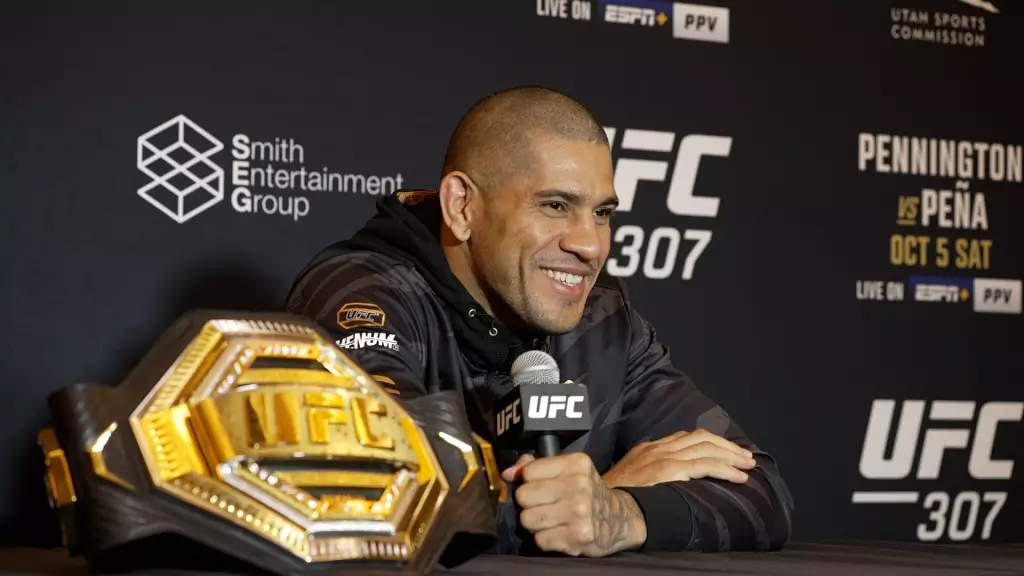The transition from kickboxing to mixed martial arts (MMA) can often be as tumultuous as it is rewarding. As fighters attempt to carve their names in the UFC, they often grapple not only with the physical demands of a new sport but also with the psychological pressures that accompany their past accolades. The case of Alex Pereira and Artem Vakhitov exemplifies these challenges, as Pereira expresses doubts about Vakhitov’s ability to forge a similar narrative to his own.
Alex Pereira and Artem Vakhitov first met inside the Glory Kickboxing ring, where they traded blows in two fiercely contested bouts. Their first encounter at Glory 77 in January 2021 showcased Pereira’s striking finesse, culminating in a split-decision victory. However, the tides turned just months later when Vakhitov avenged his loss with a majority decision at Glory 78. This back-and-forth rivalry enriched their legacies as kickboxers, demonstrating their skill and resilience. Yet, as Pereira prepares to defend his light heavyweight title in the UFC, he questions whether Vakhitov can replicate such a significant trajectory when transitioning to MMA.
The UFC is a distinct entity compared to kickboxing, presenting a complex blend of grappling, striking, and tactics that demand versatility and adaptive skill sets. Pereira knows this all too well. After achieving prominence in kickboxing and entering the UFC with notable victories over Israel Adesanya, he quickly ascended to the championship level. Pereira’s journey wasn’t solely about technique; it involved navigating the multifaceted challenge of MMA, including grappling exchanges and submissions. The stories of fighters emerging from kickboxing and finding success in the UFC can be misleading, as Pereira points out that not every fighter can replicate his success simply based on prior achievements in a different sport.
As Vakhitov prepares to step into the UFC spotlight by competing against Islem Masraf in the Dana White Contender Series, the stakes are high. A win could earn him a coveted UFC contract, allowing him to enter a world where past accolades may not guarantee future success. Pereira’s skepticism hints at the broader scrutiny that incoming fighters face; while talent and experience are critical, the ability to adapt to MMA’s diverse threats is what ultimately determines longevity in the octagon.
Pereira stands as a testament to what can be achieved with tenacity and adaptability, yet he acknowledges that each fighter’s journey is singular. As Vakhitov embarks on this new chapter, he must contend with the burdens of expectation and the reality that entering the UFC is a rigorous test that transcends the histories they carry with them. The MMA canvas is broader and demands more than just kickboxing prowess; it requires fighters to be multifaceted athletes capable of adjusting to the demands of a more complex sport. As Vakhitov seeks to carve out his narrative in MMA, he must prove that he possesses the necessary tools to succeed in this demanding arena.

